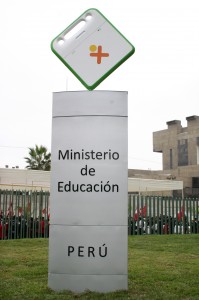by Antonio M. Battro, Chief Education Officer, OLPC
Children can learn a new common and universal language that we may call “digitaleseâ€. Even before speaking, infants can perform with the computer many interesting actions by pressing a key. This elementary action, the “click option†– to click or not to click- is the consequence of a conscious choice made at the cortical level of the brain. The remarkable ability of our brain to make simple choices and make predictions about the outcomes of an action is the basis of the acquisition of a universal “second language†by any kid in the world with access to a computer, the so-called “digital nativesâ€. In a sense we are witnessing the unfolding of a new “digital intelligence†(Battro & Denham, 2007).
Children learn to speak any language without the help of a grammar, just by hearing how others speak in their community, and they also learn to communicate with a computer -and via the computer with other people- when they share the same digital environment just by peer-to-peer interaction. This is why “saturation†is a central principle of the OLPC program. It is a matter of scale. We need a large numbers of participants in different cultures to enhance the diversity of strategies for teaching and learning.
It may take some time to find the best spontaneous strategies to learn how to read and write with the help of a computer but we already have some hints about successful prosthetic devices in education. For instance, nobody will deny that the cochlear implants have changed the life of a deaf person. Today the implanted deaf person can hear not only environmental sounds but understand language as well and early implants in deaf infants is increasing the formidable success of those neuro-prostheses. We can expect similar neurocognitive breakthroughs in reading and writing soon thanks to the “prosthetic†use of a computer at a very large scale.
As a matter of fact, many children using the OLPC platform since early ages (another basic OLPC principle) learn to type before they learn to write with paper and pen! In a sense we are witnessing something that educators didn’t predict. In most schools the explicit or implicit rule is to learn handwriting before typing and children start with the difficult analog skills needed to draw a letter, a word or a sentence (by a continuous and precise hand movement) before they are allowed to use a keyboard, a much simpler digital skill (a simple discrete action). The alternative is to start with the digital skills before “going analog†but for many educators and parents this strategy is considered a “forbidden experimentâ€. However it happens that nowadays in many places children enjoy the right to use a laptop not only at school but at home, and the once forbidden experiment is happily and spontaneously performed. In the “expanded school†of a digital environment children don’t need a pen and paper to write.
In this sense, we should also experiment with spontaneous reading using a computer. OLPC will start now to deliver XO laptops with special software to remote communities with no schools where children and adults are lacking reading, writing or number skills. An inspiration was the famous “hole in the wall†experiment done in India with illiterate children who spontaneously started to read while sharing an unsupervised computer, what Sugata Mitra calls “minimally invasive educationâ€.
Continue reading


